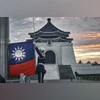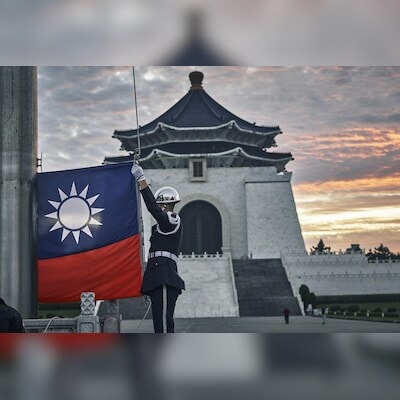The statements were prompted by social media posts made by Taiwanese singer R-chord on June 14 and actress Alexis Ho on June 15.
)
Ani
Taiwan’s Ministry of the Interior has issued a stern warning against the establishment of political groups under foreign influence. The recommendation comes after a Chinese group allegedly tried to recruit prominent Taiwanese figures to set up a political party, Focus Taiwan reported.
In a statement, the Ministry of the Interior said Taiwanese people have the right to form political parties, but cannot accept direction or funding from foreign forces to develop them, as this would violate the national security law and the anti-infiltration law.
Click here to connect with us on WhatsApp
The statements were prompted by social media posts by Taiwanese singer R-chord on June 14 and actress Alexis Ho on June 15. The posts detailed attempts by Chinese company Beijing Cigong Film and Television Media Co., Ltd. to recruit them into pro-China activities via email.
Screenshots of the emails showed that the artists were asked to publish a statement on their Facebook pages titled “Establishing a New Type of Cross-Strait Relations,” after which they would be appointed as vice chairpersons of a party calling itself the “Taiwan Peace Promotion Party.” The email also promised high-paying job opportunities with annual salaries of more than NT$10 million (US$308,950), expected to recruit at least 1,000 founding party members, Focus Taiwan reported.
According to information from Chinese business search platform iQiCha, Beijing Cigong Film and Television Media Co., Ltd. was established in February 2023 with registered capital of 90 million Chinese yuan (about $12.4 million). The company’s business activities mainly involve the production of films and television programs, and the planning of cultural and artistic exchanges.
As of its most recent update, the Ministry of the Interior’s political party information website does not list a group called the “Pro-Taiwan Party,” highlighting that such an organization is not officially recognized within Taiwan’s political framework.
Underscoring its broader concerns, the Ministry of the Interior cited past cases in which Taiwanese political parties were suspected of receiving direction or funding from the Chinese Communist Party (CCP). In particular, leaders and officials associated with the Republican Party and the People’s Communist Party of Taiwan have faced allegations of promoting certain political candidates under the influence of the CCP.
Article 2 of the National Security Law explicitly prohibits individuals from engaging in activities that establish, fund, operate or develop organizations on behalf of any foreign country, including entities deemed hostile to the interests of China, Hong Kong, Macau or Taiwan.
Similarly, Article 3 of the Anti-Infiltration Act prohibits individuals from making political contributions or donations related to referendum activities if such activities were influenced, commissioned or funded by sources related to foreign infiltration, Focus Taiwan reported.

